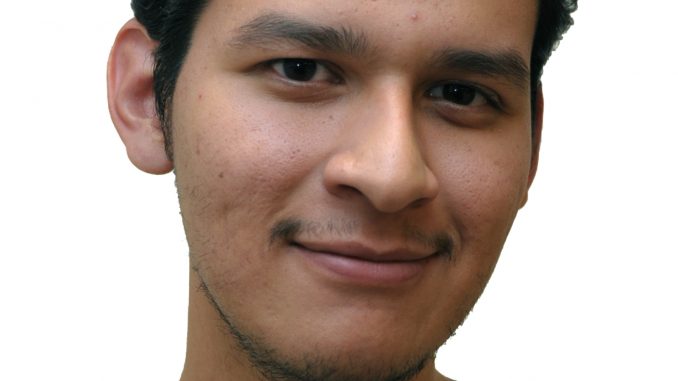
 Growing up, my Latino heritage was always at the forefront of my upbringing. My parents made sure that while I was growing up in America — where they knew I’d have countless opportunities — I needed to learn about their cultures and fuse them into my identity. They succeeded.
Growing up, my Latino heritage was always at the forefront of my upbringing. My parents made sure that while I was growing up in America — where they knew I’d have countless opportunities — I needed to learn about their cultures and fuse them into my identity. They succeeded.
My parents split up the task of making me bilingual: Mami would speak to me in Español, and Papi would speak to me in English. It was a great plan, and when I made it to pre-K I was a master linguist — along with probably the majority of students in that Miami classroom born to immigrant parents.
After six years of living in the se-habla-Español bubble that is Miami, my parents made the decision to move hundred of miles up north to the town of Marlborough, Mass. Not to say that the town I grew up in wasn’t diverse, but it led me to grow up as one of the minority as opposed to one of the majority.
Being a minority in my hometown actually caused me to seek out more of my Latino heritage, rather than push it to the side. I made efforts to learn about my heritage and seek out the history of the ancient Mayan, Aztec and Inca cultures. As opposed to the other ancient cultures we were taught. I was always disappointed when my teachers would tell me that the history of Central and South America were not on the curriculum.
At one point during my freshman year of high school my appreciation of my heritage turned into obsession. All I could talk about was my heritage and I even went to the point of sometimes dressing head to toe in clothes themed to Colombia and Honduras, the countries my parents are from.
A lot of my identity struggles were due to the fact that I was hiding from myself.
I was hiding the fact that I was gay by draping myself in tacky shirts with Colombian and Honduran flags on them. I was literally wearing my heritage on my sleeve, to hide another part of myself.
After my freshman year of high school, my parents decided we should move back to Florida — this time to Orlando. I was once again a part of the majority since my high school was majority Puerto Rican. It was no longer special that I was Latino. I was one of the many, instead of one of the few.
It took my last three years of high school in Florida to start coming out to people, and accepting myself.
This opportunity to be in a new place, with no friends and no ties to any of the people who knew me as the boy who was overly obsessed with his heritage, provided me the time to reflect. After some time I was able to realize that I was more than where my parents were from. I was my own person.
The first two weeks of October mark the end of Hispanic Heritage Month and the beginning of LGBT History Month.
These past two weeks have made me look back at the transition I took from being wrapped up in one aspect of my life to accepting another.
Since coming to college I’ve ditched the whole gimmick of hiding behind my heritage and got involved in LGBT-related organizations. It really helped me become more comfortable with who I am.
I was more free to accept myself as gay when I got to college and even worked as an executive board member of Temple’s Queer Student Union for two semesters. This came with a price, as I basically abandoned my Latino heritage — save for when I’d talk to my mom on the phone or the one time I managed to find a Colombian restaurant in Philadelphia.
In the last month I’ve done a lot more reaching out to my Latino peers on Main Campus, through interviewing people like AdEL’s president Julie Malave and observing events like last week’s salsa dancing event Baila Conmigo, and have found that now it’s time for me to go out there and reconnect with the community I seem to have abandoned.
I was afraid that being openly gay would automatically make it more difficult for me to reach out to my Latino peers. But, by assuming this, I was only causing a disservice to myself and giving my fellow Latinos less credit than they deserve.
I’m going to use the rest of my time at Temple to make sure I take full advantage of the Latino and LGBT community that is here and have a healthy balance between my two cultures.
I’ve followed the advice of many people I’ve spoken to here, when they said that you have to go looking for your community. It won’t come to you.
Luis Fernando Rodriguez can be reached at luis.fernando@temple.edu.



Be the first to comment